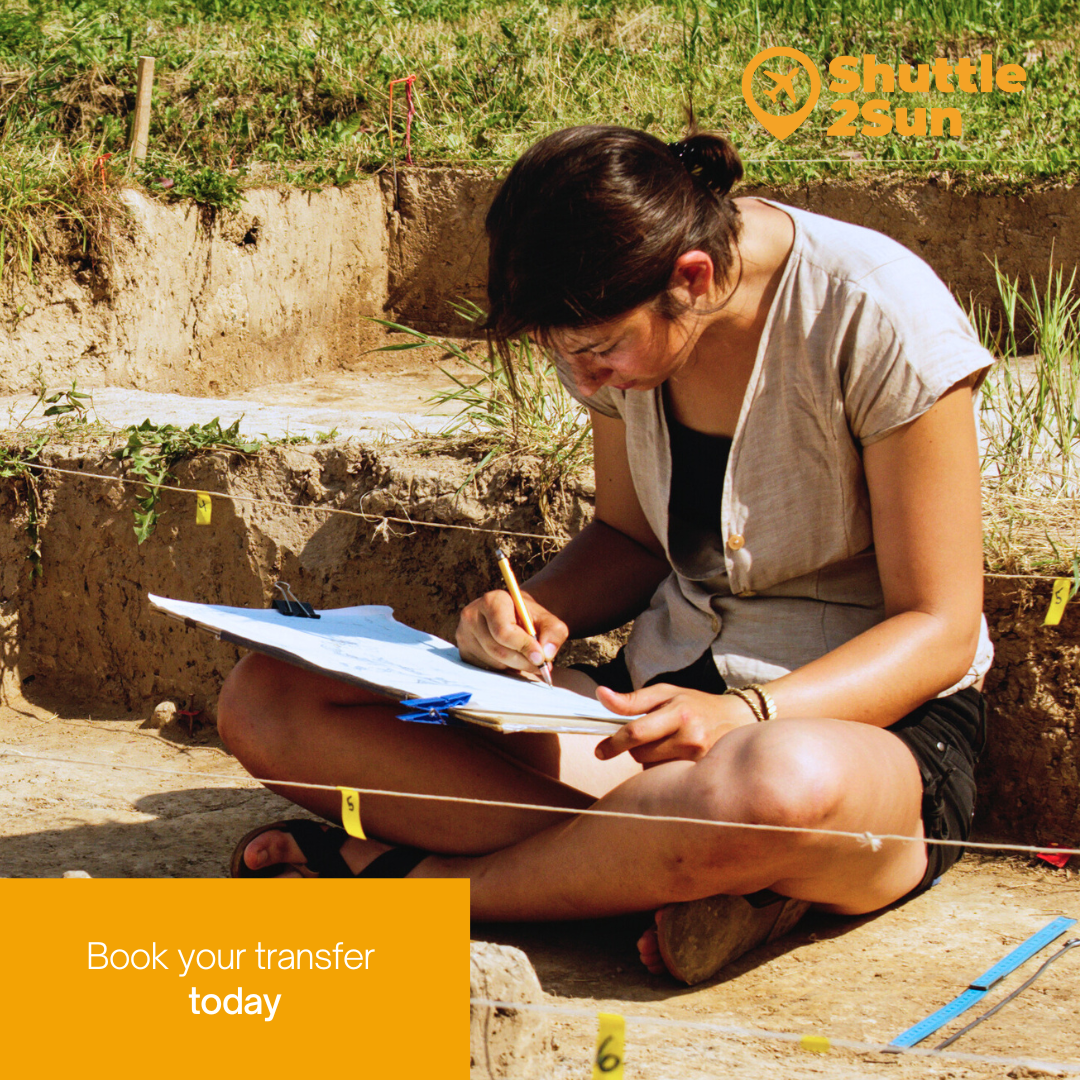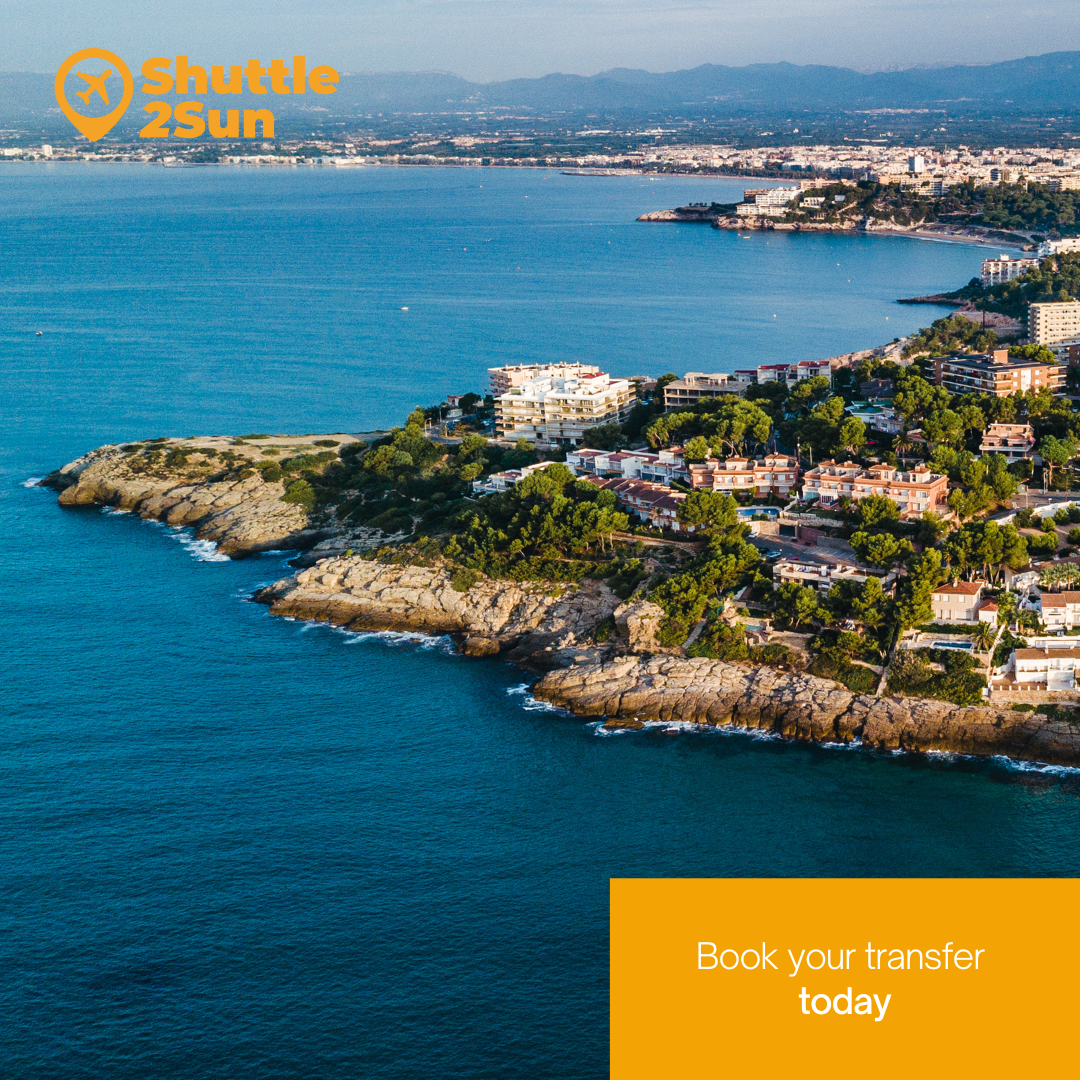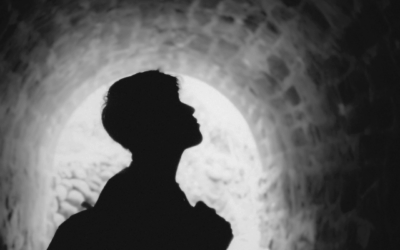At the top of the Racó de Salou hill, the protohistoric settlement of La Cella stands as a silent witness to ancient history on Costa Dorada. Its privileged location, overlooking the bay of Tarragona, allowed its ancient inhabitants to control the territory and take advantage of natural resources, while facilitating trade with other Mediterranean cultures. Today, this site offers visitors a stroll through history and landscape, with views that evoke centuries of civilisation.
Exploring La Cella is like stepping into a world where everyday life, architecture and social organisation take shape before the visitor’s eyes. The rectangular dwellings and orderly layout of the settlement reveal a functional and sophisticated urban design, while the ceramic remains help us imagine how people lived and worked thousands of years ago.
With the musealization underway, La Cella is preparing to become a first-rate tourist attraction in Salou. With the shared transfer services and private transfer services offered by Shuttle2Sun, which are low-cost and sustainable, you can reach Costa Dorada from Barcelona Airport, Barcelona Port, Reus Airport, Girona Airport and the Camp de Tarragona AVE train station.
Origin of the Settlement of La Cella
The settlement of La Cella is thought to have originated in the Greek world, as confirmed by recent archaeological excavations. It was founded in the first half of the 4th century BC, at a time when Mediterranean peoples were establishing strategic settlements along the Catalan coast.
The choice of the Racó de Salou hill was no coincidence: from there, it was possible to visually dominate the bay of Tarragona and control land and sea routes of great importance for trade and communication.
The structure of the settlement reflects a typical Hellenic emporium design, with rectangular dwellings measuring between 90 and 120 m² distributed evenly, showing no evidence of social hierarchy.
This urban model indicates that La Cella was conceived to function as a centre of balanced economic and social activity, where urban planning and efficient use of space were fundamental. The architectural and ceramic finds confirm the influence of Greek construction techniques, especially in the organisation of space and the construction of roofs.
The Greek origin of the settlement, together with its strategic location and planned urban layout, has led some researchers to identify La Cella with the ancient city of Kal·lipolis, mentioned by classical authors such as Avienus.

Although this identification is not yet definitive, the parallels between geography, chronology and archaeological evidence reinforce the importance of the settlement as a unique Greek enclave on Costa Dorada. Thus, La Cella not only reflects the local history of Salou, but also the Mediterranean presence that marked the region during protohistory.
Discover Salou’s past! Shuttle2Sun offers its shared transfer services and private transfer services, which are low-cost and sustainable, so that you can easily travel to Costa Dorada from Barcelona Airport, Barcelona Port, Reus Airport, Girona Airport and the Camp de Tarragona AVE train station.
Daily Life and Economy
Archaeological remains indicate that wine production was one of the economic activities of the settlement, reflecting the Greek influence on Mediterranean viticulture. In addition, the pottery found at the site suggests that the inhabitants made everyday utensils, which allows us to reconstruct aspects of their diet, food preservation and domestic organisation.

The urban design and layout of the dwellings reveal an organised community, with spaces set aside for both family life and productive activities.
The settlement also maintained close ties with the natural environment and other Mediterranean communities, facilitating the exchange of goods and knowledge.
Cultural Diversity
Its strategic location on the hill allowed it to control trade and maritime routes, consolidating La Cella as a small but significant centre of economic and cultural activity.
This is why the cultural diversity of La Cella is another of its most fascinating aspects. Studies have revealed the presence of materials of Iberian, Greek and Punic origin, indicating that the settlement was a melting pot of Mediterranean cultures.
This multiculturalism is reflected in its architecture, in the everyday objects found there and in the economic practices that developed in the area.
Today, these remains allow visitors to imagine what life was like in a Greek emporium more than two thousand years ago, offering a unique historical experience that combines archaeology and landscape.
Musealization and Guided Tours
Salou has launched an ambitious project to turn the La Cella site into a museum space, with the aim of making it an accessible and attractive cultural space for the general public. The work includes the conservation and signposting of the original structures, the creation of interpretive itineraries and the installation of information panels explaining the history, daily life and organisation of the settlement.
The site offers scheduled visits, offering guided tours and complementary activities aimed at disseminating the historical and cultural heritage. These visits allow those interested to delve deeper into the archaeology of the site, learn about the results of the latest excavations and understand the importance of La Cella within the network of settlements on the Costa Dorada.
In this way, the site is establishing itself as a leading tourist and educational destination, combining history, culture and landscape in a unique experience for visitors of all ages. Remember that you can get to Salou with Shuttle2Sun, which offers low-cost and sustainable shared transfer services and private transfer services from Barcelona Airport, Barcelona Port, Reus Airport, Girona Airport and Camp de Tarragona AVE train station.



